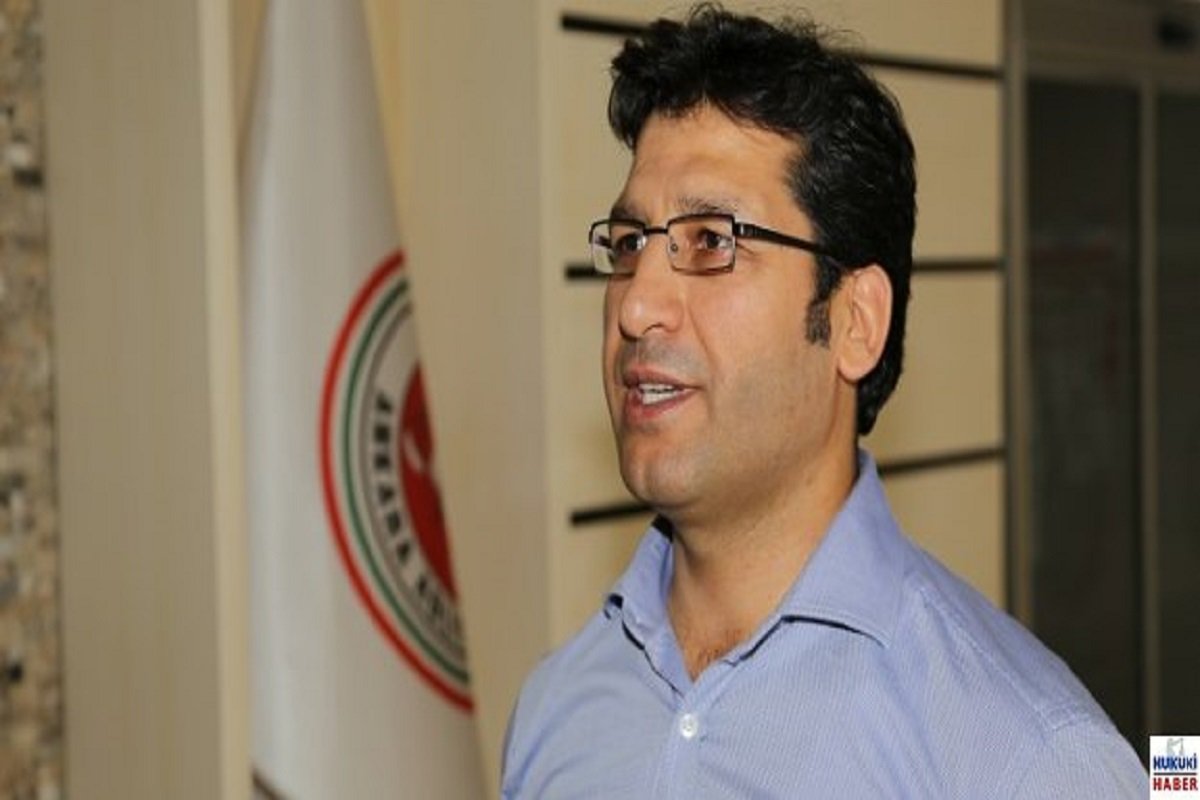The son of Veysel Atasoy, a former decorated police officer who died of COVID-19 last year while in prison in Kütahya province, has said his father was a victim of gross negligence.
Atasoy’s son shared details of the final days of his father’s life on Twitter on the anniversary of his death on September 11. “My father, who could barely walk, was brought to the hospital in handcuffs by six gendarmes,” he said. “He was handcuffed to his bed for the last 35 days of his life.”
Atasoy remained in handcuffs even when sedated and intubated.
Atasoy’s son added that the officers tried to prevent his father from being admitted to intensive care because they would not be able to accompany him. After long arguments with the doctor, who insisted Atasoy needed special care, the gendarmes gave in, but it was already too late.
“The prison administration had already delayed taking my father to the hospital. Although he had a high fever, they just told him to wash his face instead of taking him to a doctor or giving him medication.”
According to a diary Atasoy kept during his sickness, he asked several times to receive medication and to be taken to see a doctor but was turned down by the prison administration.
Atasoy’s son said the family was not allowed to see Atasoy during the time he was in the hospital. “We only wanted to speak to the doctor who was taking care of my father, but each time we got close to him, the gendarmes removed us from the premises,” he said.
The family was only able to see Atasoy 12 hours after his death.
Atasoy was arrested in September 2016 for alleged links to the Gülen movement. He was handed down an eight year, nine month sentence.
Turkish President Recep Tayyip Erdoğan has been targeting followers of the Gülen movement, inspired by Turkish Muslim cleric Fethullah Gülen, since the corruption investigations of December 17-25, 2013, which implicated then-Prime Minister Erdoğan, his family members and his inner circle.
Dismissing the investigations as a Gülenist coup and conspiracy against his government, Erdoğan designated the movement as a terrorist organization and began to target its members. He intensified the crackdown on the movement following an abortive putsch on July 15, 2016 that he accused Gülen of masterminding. Gülen and the movement strongly deny involvement in the coup attempt or any terrorist activity.
The rapidly spreading COVID-19 has presented greater concerns in Turkey’s prisons, which were already notorious for human rights abuses, overcrowding and unsanitary conditions before the pandemic. The death of political prisoners has revealed once again how the Turkish government puts their health in danger.
The purge of thousands of dissidents in the aftermath of a coup attempt in July 2016 has filled Turkey’s prisons, which today are overcrowded with tens of thousands of political prisoners.
According to Yunus Alkaç, director general of Prisons and Detention Centers, 50 inmates have died of COVID-19 in Turkey’s jails since the outbreak of the coronavirus pandemic in the country in March 2020.
The Turkish parliament passed an early parole law on April 14 aimed at reducing the inmate population of the country’s overcrowded prisons due to the coronavirus pandemic. Yet, the legislation excluded political prisoners, including opposition politicians, journalists, lawyers, academics and human rights defenders convicted under the country’s controversial counterterrorism laws. The law prompted calls from the UN, the EU and rights groups for the non-discriminatory reduction of prison populations.
















